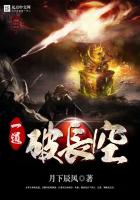If we rejoice,we rejoice with trembling:and even whilst we are receiving benefits,we cannot but shudder at a power which can confer benefits of such mighty importance.When the prophet David contemplated the wonders of wisdom and power which are displayed in the economy of man,he seems to be struck with a sort of divine horror,and cries out,Fearfully and wonderfully am I made!An heathen poet has a sentiment of a similar nature;Horace looks upon it as the last effort of philosophical fortitude,to behold without terror and amazement,this immense and glorious fabric of the universe:
Hunc solem,et stellas,et decedentia certis Tempora momentis,sunt qui formidine nulla Imbuti spectent.
Lucretius is a poet not to be suspected of giving way to superstitious terrors;yet when he supposes the whole mechanism of nature laid open by the master of his philosophy,his transport on this magnificent view,which he has represented in the colours of such bold and lively poetry,is overcast with a shade of secret dread and horror:
His ibi me rebus quaedam divina voluptas Percipit,atque horror;quod sic Natura,tua vi Tam manifesta patens,ex omni parte retecta est.
But the Scripture alone can supply ideas answerable to the majesty of this subject.In the Scripture,wherever God is represented as appearing or speaking,everything terrible in nature is called up to heighten the awe and solemnity of the Divine presence.The Psalms,and the prophetical books,are crowded with instances of this kind.The earth shook,(says the psalmist),the heavens also dropped at the presence of the Lord.And,what is remarkable,the painting preserves the same character,not only when he is supposed descending to take vengeance upon the wicked,but even when he exerts the like plenitude of power in acts of beneficence to mankind.Tremble,thou earth!at the presence of the Lord;at the presence of God of Jacob;which turned the rock into standing water,the flint into a fountain of waters!
It were endless to enumerate all the passages,both in the sacred and profane writers,which establish the general sentiment of mankind,concerning the inseparable union of a sacred and reverential awe,with our ideas of the Divinity.
Hence the common maxim,Primus in orbe deos fecit timor.This maxim may be,as I believe it is,false with regard to the origin of religion.The maker of the maxim saw how inseparable these ideas were,without considering that the notion of some great power must be always precedent to our dread of it.But this dread must necessarily follow the idea of such a power,when it is once excited in the mind.It is on this principle that true religion has,and must have,so large a mixture of salutary fear;and that false religions have generally nothing else but fear to support them.Before the Christian religion had,as it were,humanized the idea of the Divinity,and brought it somewhat nearer to us,there was very little said of the love of God.The followers of Plato have something of it,and only something;the other writers of pagan antiquity,whether poets or philosophers,nothing at all.And they who consider with what infinite attention,by what a disregard of every perishable object,through what long habits of piety and contemplation,it is that any man is able to attain an entire love and devotion to the Deity,will easily perceive,that it is not the first,the most natural and the most striking,effect which proceeds from that idea.Thus we have traced power through its several gradations unto the highest of all,where our imagination is finally lost;and we find terror,quite throughout the progress,its inseparable companion,and growing along with it,as far as we can possibly trace them.Now as power is undoubtedly a capital source of the sublime,this will point out evidently from whence its energy is derived,and to what class of ideas we ought to unite it.
VI
Privation All general privations are great,because they are all terrible;Vacuity,Darkness,Solitude,and Silence.With what a fire of imagination,yet with what severity of judgment,has Virgil amassed all these circumstances,where he knows that all the images of a tremendous dignity ought to be united,at the mouth of hell!where,before he unlocks the secrets of the great deep,he seems to be seized with a religious horror,and to retire astonished at the boldness of his own designs:
Dii,quibus imperium est animarum,umbraeque-silentes!Et Chaos,et Phlegethon,loca nocte silentia late,Sit mihi fas audita loqui;sit,numine vestro,Pandere res alta terra et caligine mersas.Ibant obscuri,sola sub nocte,per umbram,Perque domos Ditis vacuas,et inania regna.















